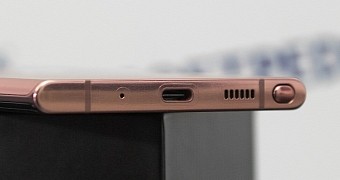What was already a known thing is now a certainty: the European Union has passed a directive that requires device makers to equip their products, including phones, tablets, and headphones, with a USB-C port beginning in 2024.
The Council approved the new law today, with EU officials that having a single charger for all devices would essentially reduce electronic waste and help Europeans save money.
“The new rules will make a USB-C charging port mandatory for a whole range of electronic devices. This will mean that most devices can be charged using the same charger. For consumers to know exactly what they are buying, the directive introduces a pictogram that specifies whether a new device comes with a charger and a label indicating the charging performance,” the European Council explains.
“The directive also allows consumers to choose whether to purchase a new device with or without a charger. This will not only save consumers money, but will also reduce the electronic waste associated with the production, transportation and disposal of chargers. Four years after the directive enters into force, the Commission will assess whether this unbundling of sales should be made mandatory.”
The company that is hit the hardest by the new regulation is Apple.
All iPhones are fitted with Apple’s proprietary Lightning port, so the Cupertino-based tech giant will be forced to switch to USB-C beginning with the 2024 iPhone. However, it’s believed the company is already working on this switch, and the first iPhone with a USB-C port could go live as soon as the next year.
The EU, however, it’ll focus more on wireless charging, as this is yet another step towards tackling electronic waste.
“Although becoming more popular, wireless charging has not yet been harmonised across devices. To enable this technology to become available for more devices, the Commission will work on harmonising wireless charging for electronic devices and on interoperability based on technological developments,” the press release reads.

 14 DAY TRIAL //
14 DAY TRIAL //